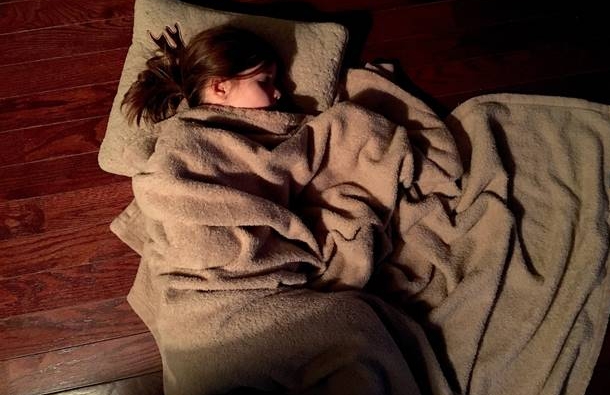
London Sleep Centre Dubai identifies 5 common sleep problems and offers remedies to combat it
We all love to get enough of sleep, don’t we? But the fact remains that a sizable population is affected by sleep disorders and many a times are not even aware of it.
But what is a sleep disorder? It involves problems with the quality, timing and amount of sleep, which causes problems with day-day functioning and distress in behaviour. The London Sleep Centre Dubai rounds up 5 prevalent Sleep Disorders and ways to combat it. Read on to see if you figure in any of these categories.
- Snoring: Who doesn’t have a snorer in the family! It is caused when the flow of air through the mouth and nose is physically obstructed. Habitual snorers are at a risk of serious health issues including Obstructive Sleep Apnoea, heart diseases and even hypertension.
- Remedies:
If snoring is accompanied by other symptoms such as daytime sleepiness, morning headaches, unrefreshing sleep or getting up frequently at night to pass urine, then it indicates that the snoring is affecting sleep quality, and can be a sign of the more serious but relatively common condition of Obstructive Sleep Apnoea. To diagnose this a home sleep study is required. Treatment for snoring and mild sleep apnoea can include a mandibular advancement split which is worn in the mouth at night to prevent the lower jaw from falling back, or sometimes simple position therapy which prevents the person from sleeping on their back can be helpful. For sleep apnoea the gold standard treatment is Continuous Positive Air Pressure Therapy (CPAP) which involves the person wearing a mask over their mouth or nose connected via a tube to a small machine which pumps air into the airway to keep in open. Sufferers often feel an immediate benefit once starting this treatment.
- Initiation Insomnia (difficulty falling asleep): Characterized by the inability to initiate sleep, this may seem a mild disorder initially but can go on to become an unbearable one. People could be dealing with acute anxiety, dizziness and hypertension as a result of this.
- Remedies:
It is important to treat the disorder in the early stages. Non-medical treatments may entail sleep hygiene, relaxation therapy, control of stimuli, and sleep restriction while medical treatments could include a short term prescription of certain effective sedatives, as well as cognitive behavioural therapy which helps ‘re-train’ the brain to fall asleep
- Maintenance Insomnia (difficulty staying asleep): To put simply, it’s all about waking up in the middle of your sleep and then having problems falling asleep again. Whether you are waking up briefly or frequently through the night, this sleep disorder can be irritating as it does not let you complete your mandatory sleep cycles. Factors like stress, depression, medical issues and menopause along with alcohol addiction can add further woes to this disorder.
- Remedies:
70-80% of patients with sleep maintenance insomnia have an underlying physiological sleep disorder that they are unaware of. This could be a mild sleep breathing disorder, or periodic limb twitches of sleep. In order to successfully treat this complaint it is important to know the exact cause – this is done by having a sleep study. Once the cause is determined and treated, the maintenance insomnia is usually cured. If no underlying disorders are found, then a combination of cognitive behavioural techniques, sleep restriction therapy or a short term of prescribed sedatives can help.
- BIISS (Behaviourally Induced Insufficient Sleep Syndrome): It is a chronic, voluntary sleep restriction that is a prevalent cause of Excessive Daytime Sleepiness (EDS) and daytime fatigue. It occurs when individuals sacrifice sleep in favour of other activities like watching TV, partying, late night work shifts or even for hobbies like reading. It can lead to poor work performance, social withdrawal, depression, and other psychological problems if not dealt with timely.
- Remedies:
Remedies definitely are individual-specific depending upon the intensity of the disorder. In many cases sleep hygiene and habits are improved to induce routine sleep and in some cases sleep practitioners advise a cut in late-night work hours to maintain sleep sanctity.
- Restless leg Syndrome: This is the urge to move your legs, usually worse during the evenings and accompanied typically by uncomfortable sensations like itching, gnawing or creepy-crawling. This can cause sleep initiation insomnia in some suffers. It is also highly associated with another disorder called Periodic Limb Movement Disorder of Sleep, a bed partner may notice frequent leg movements throughout the night, although they can be very small and unnoticeable, but can be highly detrimental to sleep quality.
- Remedies:
It can be treated with home remedies, lifestyle changes, or specialized medicine. Sleeping on a regular schedule, exercising, stretching, massage, avoiding alcohol and applying heat or cold to your legs can help ease discomfort. Vitamins, supplements (especially iron if iron levels are low) and prescription medications can also help with RLS symptoms and Periodic Limb Movement Disorder.
Sleep disorders are secretly entering our lives and taking over our mental peace. It is best to consult a sleep specialist for medical intervention and guided path to recovery.


























